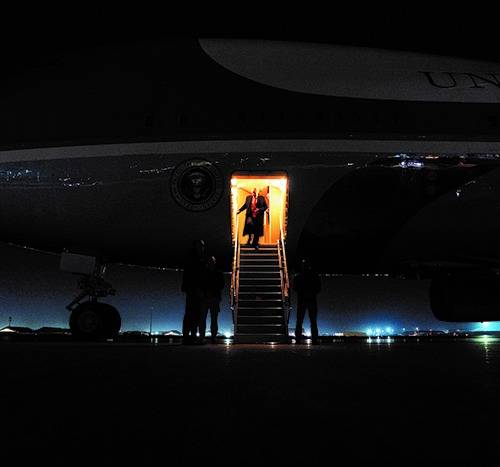After four years in office Vladimir Putin remains an enigma. Is he a reformer, determined to modernise his country, consolidate the rule of law and block any return to the old communist era? Or is he at heart an authoritarian, a nationalist and a man who hankers for the old Soviet system? It certainly seemed at first that he was what most Russians were yearning for: the antithesis of Yeltsin, a leader who was young, fit, sober and determined to crack down on the corruption, licence and exploitation of the oligarchs, regional autocrats and criminal gangs who had impoverished postcommunist Russia and made it all but ungovernable.
But in the last year, the evidence more and more shows that Putin is no democrat in the Western model. He barely tolerates political opposition, has all but extinguished a free press and believes, above all, in a strong state and a strong leader. And the Russians love it. His approval rating is now running at an unprecedented 80 per cent. He is certain to be reelected president in March by a landslide.
How has this little known and relatively young former KGB officer risen from a modest background in Leningrad to supreme power in the world's largest country so quickly and apparently so effortlessly? What are the strengths that enabled him to survive in a country where plotting is endemic and where almost all attempts at change run into the historic forces of inertia, conservatism and suspicion?
Putin has succeeded largely because he was, and remains, all things to all people. Ask a Russian how Putin is doing, and the answer depends on who is speaking. The man in the street likes him because he feels that Putin has brought stability to the country, cracked down on crime, presented a dignified face to the world and once again made Russia respected and a little feared abroad after the chaotic Yeltsin years. The businessman likes him because he has encouraged Western investment, allowed the middle class to grow and pursue material prosperity and challenged the power of the superrich and monopolists who had a stranglehold on the economy. Ask the bureaucrats and they are delighted that the old administrative controls have been reinforced, the hierarchical structure of the state revived and respect for conservative and patriotic ideals reasserted. Ask the intellectuals and they are appalled. In Putin, they see everything they deplore about Russia: a cavalier attitude to human rights, a contempt for pluralism, a return to government by shadowy cabals and Kremlin cliques and a vengeful harassment of critics, democrats and liberals.
Which of these groups is most influential outside Russia? Overwhelmingly, it is the intelligentsia the educated elite that travels abroad, represents the arts, seeks out foreigners and inherits the freethinking, courageous vibrancy of the old Soviet dissident tradition. At most, this group represents no more than ten per cent of the population. The one person who could comment best on the Putin administration is Putin himself. But he feels little need to do so. He dislikes electioneering, is awkward in explaining his vision and is a poor public communicator. He is, essentially, a creature of the old KGB controlled, selfdisciplined, a dissembler who rarely reveals his hand and adopts a Sphinxlike public persona.
The key to Putin's Russia therefore lies in the past of the man himself. This is why a political biography is so timely. Peter Truscott's Putin's Progress attempts to link events in Putin's life to the evolution of his thinking. He grew up in Leningrad, the son of parents who had survived the terrible siege, lost one child early and another to starvation and gave birth to Vladimir relatively late. He was a rather puny child, spoilt by doting parents and, by his own admission, a tearaway at school.
It was only when he took up judo and began to dream of life as a spy inspired by a film that his compass was set. Disciplined, introverted, abstinent, he achieved both aims, becoming a judo champion and, after law school, KGB recruit. The collapse of the Soviet Union was a disaster for him and the KGB, and, as often, his luck appeared to run out. But connections and good fortune took him back to Leningrad, to work with the new mayor, Anatoly Sobchak. After Sobchak's electoral defeat, a lucky break sent him to Moscow. He rose swiftly from political aide in the chaotic days of privatisation to head of the FSB (the KGB successor), to the last in a line of revolving door Prime Ministers, eventually becoming Yeltsin's chosen successor.
All this is fairly conventional stuff, and Truscott tells it in a breezy journalistic way. Indeed, the breeziness can be irritating: too much material has been lifted straight from elsewhere numerous press cuttings and Harrison Salisbury's The 900 Days especially and inserted, undigested, into the narrative. The facts are fascinating Putin rushing into his burning dacha to save $5,000 hidden behind the bed, for example, his rare display of emotion at Sobchak's funeral or his unforgiving nature that values loyalty above truth but extraneous references are often gratuitous. Pages of names of those crossing Putin's path are as intimidating as any barrier he faced on the way up. Truscott's psychological analysis is at times astute, his reflections are apposite and his objectivity and political balance exemplary. It would be nice if his own persona, former writings and encounters with Russian politicians had been given less boastful prominence. But there is enough here to explain some of the attitudes, prejudices and weaknesses of this shadowy man. What is hard, however, even after 350 pages, is to decode the Putin enigma. Even Truscott admits at the end that he is baffled.
Putin's Progress is available from Amazon (UK)

